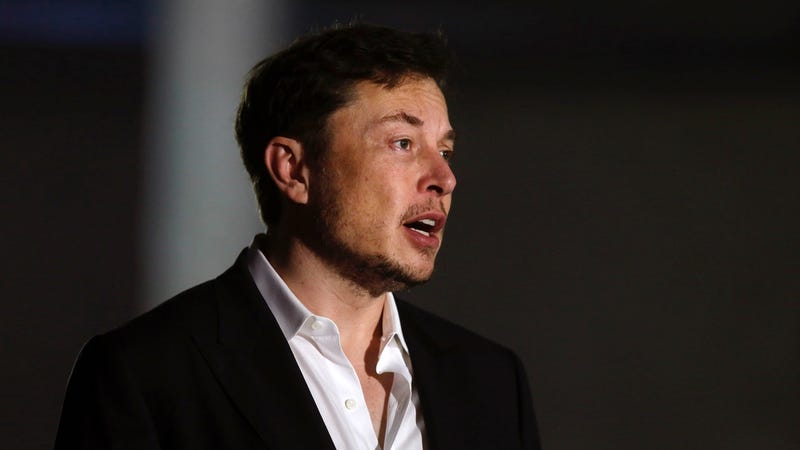 Photo: Getty
Photo: Getty
Elon Musk had quite a weekend on Twitter. The billionaire tech mogul accused one of the cave divers who helped save a Thai soccer team of being a pedophile yesterday. And now the diver is considering a lawsuit.
British national Vernon Unsworth was instrumental in rescuing 12 kids and their soccer coach from a flooded Thai cave last week. And Unsworth wasn’t shy about explaining that Elon Musk’s plan to rescue the kids was ridiculous. This criticism led Musk to first question whether Unsworth was even there (he was) and then led Musk to call the hero a “pedo guy,” pedo being short for pedophile.
Unsworth told the AFP news agency today that he hadn’t personally seen the tweets (Musk deleted them last night) but explained that’d he’d heard about them.
“If it’s what I think it is yes,” Unworth replied when the AFP asked him if he planned to sue. Unsworth said that he’d make a final decision about a defamation lawsuit when he got back to the UK.
“He’s just a PR stunt merchant—that’s all he is,” Unsworth said about Musk, according to the AFP.
Screenshot: Twitter
What prompted Musk to call Unsworth a pedophile? Musk seemed to base his unfounded claim on the fact that Unsworth is British and spends time in Thailand. Child sex trafficking and prostitution is a problem in Thailand, just as it is in countless other parts of the world like Musk’s country of birth South Africa, but simply living in any country is clearly not grounds for such accusations. When Twitter users told Musk to chill out, Musk doubled down on the accusation, saying “bet ya a signed dollar it’s true.”
Unsworth splits his time between Thailand and the UK and is considered the foremost expert on the caves where the Thai soccer team was trapped. Without Unsworth’s help, the rescue probably wouldn’t have been as successful as it was.
But Elon Musk has been incredibly sensitive to criticism that he’s received about his own actions in Thailand. Musk famously flew into Thailand with his “mini-submarine,” which was ridiculed by many for being an absurd and impractical way to save the kids. Countless experts, including Unsworth, called Musk’s actions a “PR stunt.” The head of the rescue team said that Musk’s idea simply was “not practical.”
Elon Musk has been an object of ridicule and scorn for the past week, not only for his baseless attacks on heroes, but because Musk was revealed to have given thousands of dollars to Republicans over the last quarter. Public records show that Musk has given $39,600 to a Republican PAC called Protect the House, which seeks to keep Republican control of the House of Representatives. Republicans, as you might recall, are the people who have built baby cages and instituted a policy of “zero tolerance” for asylum seekers at the US-Mexico border. Musk’s donations came the week after America’s internment camps had become mainstream news.
Musk was one of the last tech figures to quit President Trump’s advisory council in 2017 and has gotten heat for getting cozy with authoritarians. Musk insisted that he could change things from inside the Trump regime, but that claim was always pretty silly. It seemed like Musk was simply looking out for himself with all his dabbling in the political sphere. And it makes sense. Musk makes a lot of money from the government. His companies receive as much as $4.9 billion in subsidies by some estimates, though it’s tough to break out the numbers exactly. Even if it’s just a fraction of that, his businesses, from SpaceX to Tesla, rely heavily on government handouts.
Elon Musk has spent the past decade becoming a nerd-hero to so many who want him to represent the best that the tech community has to offer. But it seems every time people get their hopes up, he lets them down.
[AFP via SBS News]
Correction: This post originally quoted Musk as saying “bet ya a dollar it’s true.” Musk, in fact, tweeted, “bet ya a signed dollar it’s true.” Presumably, Elon Musk believes that a dollar signed by himself is worth more than a dollar. Gizmodo regrets the error.
Correction: This post originally described Protect the House as a SuperPAC. In fact, it’s a regular Republican PAC. Regular PACs are allowed to donate to individual candidates, but have limits on how much they can spend. Super PACs have no limits on how much they can spend on issues that involve candidates, but cannot give money directly to candidates.